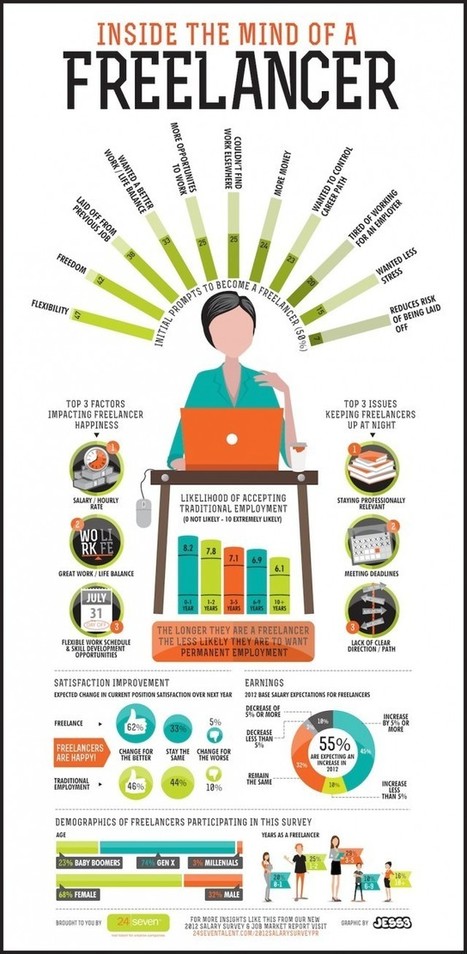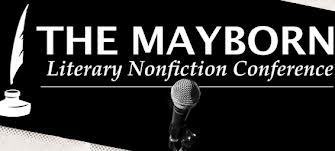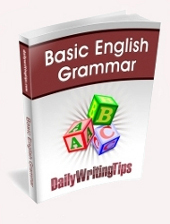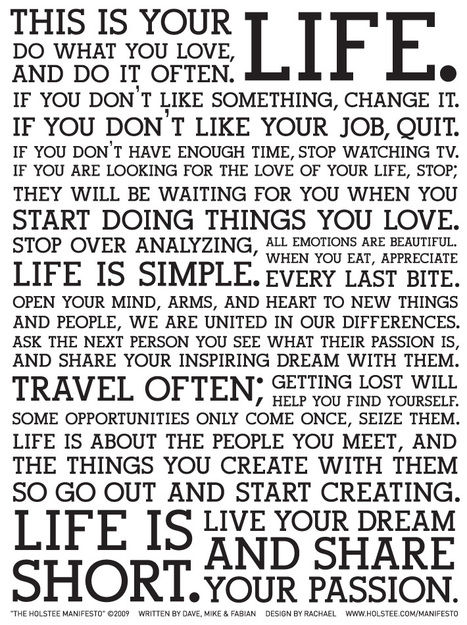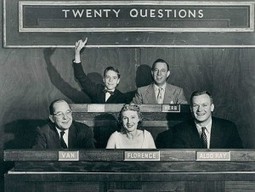 Your new post is loading...
 Your new post is loading...
An infographic detailing the pros and cons of choosing work as a freelancer over a traditional job. The main reason many freelancers gave for their job happiness is the salary, which is not surprising since freelancers are expecting a 55% increase in pay this year. That pay bump combined with the freedom of their schedule and other benefits adds up to a pretty sweet-sounding job. On the other hand, many freelancers also find it difficult to stay relevant, and it’s not like they’re totally off the hook on their schedule; they still have the same grueling deadlines as folks with traditional writing occupations. Thanks to these factors, writers who are in their first year of freelance work are often more likely to accept traditional employment versus people who have been freelancing for many years....
David Ogilvy gives 10 tips on writing that are still relevant today in PR. [Hadn't seen these for years. Still great advice from a legend - JD]
The other day, I went to buy some walking shoes.
And I ended up spending $2000. And that’s not counting the shoes.
Now, did that opening get your attention?
Sure it did. It sucked you in. And the reason you hear that strange sucking sound is because I didn’t start off the article like most people do. Most people slide logically into an article. But you can use the power of the story. And not just the story, but the middle of the story. Because there, smack bang in the middle, lies the drama—the part that really captivates your reader.
So how do you know what to pick as you unfold your story?...
[Great writing tips from Sean D'Souza - JD]
Writing has been Demian Farnworth's professional life. And naturally, he has a lot to say about it ... Writing is hard.
Writing something worth sharing is even harder.
Writing something worth keeping — hardest.
That’s twelve years of professional writing experience summed up in fifteen words....
Like the twelve particularly important lessons that I learned, which I hope will guide you down a path to becoming a world-class writer.... [Demian Farnworth shares 12 great tips for PR, writers and bloggers - JD]
The questions of where good ideas come from, what inspiration is made of, why some people are more creative than others, and how we can optimize ourselves for creativity are perhaps as enduring as the act of creation itself. In this short clip from the vintage TV special Writing for Television, Rod Serling, creator of the cult-classic The Twilight Zone, manages to articulate the combinatorial nature of creativity in a mere 64 seconds... [Masterful explanation of storytelling from the master - JD]
Richard Rhodes, the Pulitzer-winning author of The Making of the Atomic Bomb, and of 23 other books, delivered one of the keynotes at this year’s Mayborn Conference for Literary Journalism. Here are five top takeaways from that address, followed by an edited transcript of his talk and a snippet from the Q-and-A session that followed.... [Inspiring read for writers, bloggers, PR and content marketing pros - JD]
Simple rules for becoming a better writer, from the author of “Zone One.”... Colson Whitehead says the art of writing can be reduced to a few simple rules. He shares 11 rules to help you be a better writer....
Here’s a quiz: Do the following sentences require an additional comma (or perhaps two), the omission of an existing one (or two), or both? Answers and explanations follow. [Damn, this is one tough quiz - JD]
As old rules of usage erode, employee grammar skills are getting worse, a recent survey says. Managers blame the informality of email, texting and Twitter, where slang and shortcuts prevail, The Wall Street Journal reports. This looseness with language can cause communication errors, ruin marketing materials and leave bad impressions with clients, managers say.... But Tamara Erickson, an author and consultant on generational issues, argues that 20- and 30-somethings who are accustomed to texting and social networking have simply “developed a new norm.... [Plus ca change LOL - JD]
Prepare to be stunned, baffled, confused and probably offended! We've selected 10 abominations that are the legitimate covers, of some of the least read books in the world. [Trust me! What a great collection. These are the funniest, real book or magazine covers you'll see. Enjoy - JD]
Do you have a favorite writer? Are you looking for another one? Visit our Writers page to discover Most Read, Featured, and Up & Coming Writers. Or visit your favorite authors’ own pages, where our editors have hand-picked the very best stories for you to enjoy. Read on for notable stories from our favorite authors.... [Awesome reading, story suggestions from Byliner. Just in time for the long weekend - JD]
Google and SEO may make you cringe, but the combo matters in search. Here are SEO examples from news outlets that range from bad to best. [Great examples for bloggers and PR pros - JD]
The following characteristics are twenty signs you might be a word nerd. Fellow word nerds unite! ...I thought there must be some common threads for us word nerds—individuals who are extremely passionate about grammar and writing. As InkHouse’s resident grammarian, I enjoy perfectly punctuated prose not only because my sixth-grade English teacher stopped awarding me extra-credit points after finding too many “edits for credit,” but because written communication is the heart of PR. Here’s my map of the DNA of a word nerd. If you answer yes to at least three of these characteristics, welcome to the Word Nerd Club....
|
[This looks like an excellent writing tool for students, academics and PR professionals who need to follow academic standards in citing sources. Use it to research, highlight and find sources for your research. It automatically creates footnotes or references according to the style of your choice. Best of all, it's free! Additional features are available in reasonable plan at just $10 per month. - JD]
Via Laura Spencer
From AP style to ‘that versus which,’ these simple tips will help you avoid errors in your blogs, press releases, and more. To kick-start the 2012-13 school year, here are 10 writing tips to keep in mind (and feel free to pass this note under the desk to an office buddy): [Writers, PR, bloggers take note - JD]
Are you having problems getting traffic to your blog? Are you finding that no one is retweeting your content or sharing it on Facebook? These ten I have found to be very effective and will ensure that you are providing information that your readers will find worth sharing, “Tweetable” and Facebook “likeable”. [Good reference for bloggers, PR, content producers - JD]
Pop Quiz: Are You Grammatically Correct?Test out your grammar skills with this quick quiz. People make mistakes (myself included), but when you’re in the PR industry, the quality of the content you create is constantly being analyzed. That is why it is important to pay attention to grammar. While the industry accommodates and encourages different styles of writing, there are some things that don’t allow for creative freedom. There is right and wrong when it comes to grammar, so in honor of back-to-school season, take this pop quiz to find out if you have what it takes to make the grade.... [A tricky, fun quiz - JD]
Good writing rests on two things: content and structure. Content - knowing what it is you want to say - comes first. Just as important, though, is structure: the words you choose and the way you build the sentences they are in. PR relies on clarity. You want your key message to cut through the clutter that surrounds us all. The tool below will help deliver your message. Use it to keep refining your sentences and the words you use in them. The key score is Flesch Reading Ease. It uses algorithms to compute how easy it would be for someone to quickly read and grasp most of you want them to know. Flesch scores range from 0 to 100. You want a high score. Your key message should score at least an 80. Your lead should score at least a 75. Your entire document needs to be at 60 or above. If you don't hit these scores it means your message is likely shrouded in a bit of a fog. You've failed to clearly and concisely deliver the message someone is paying you to deliver.... [Cool free tool - Flesch Reading Index. Just cut and paste your copy. Rewrite and retest as needed. - JD]
Stories are a very integral part of being persuasive. You’d think that as a guy that loves research and data, I’d be averse to storytelling as a whole. As a marketer though, I can’t be: those in sales and marketing have known for a long time that stories trump data when it comes to persuasion because stories are easier to understand and relate to. Are you incorporating stories into your copy? Are you utilizing them on your blog? If you’re anxious to understand and tap into the power of storytelling, get ready to jot down some notes!... [Greg Ciotti's post is a great read on art and science in storytelling - JD]
Good research doesn't just magically appear. Stories, anecdotes and data have to be found before you can use them ... You have to hunt them down like a shark, chasing the scent of blood across the vast ocean of information. The bad news is that this is an unenviable task … but the good news is that it’s not impossible.
It’s not even that hard … once you learn what you’re doing — and I’m going to teach you those skills.
By the time I was 21, my research had been used by #1 New York Times Bestselling authors like Robert Greene, Tim Ferriss, and Tucker Max. Was I a slave to study? Did I have to become a library hermit to accomplish this? No, I did it all in my spare time–on the side, with just a few hours of work a week.
Here’s how I did it.…
"Never write more than two pages on any subject."
...After tracing the fascinating story of the most influential writing style guide of all time and absorbing advice on writing from some of modern history’s most legendary writers, here comes some priceless and pricelessly uncompromising wisdom from a very different kind of cultural legend: iconic businessman and original “Mad Man” David Ogilvy. On September 7th, 1982, Ogilvy sent the following internal memo to all agency employees, titled “How to Write”... [Great tips from the master David Ogilvy - JD]
Before you start writing anything for a PR and marketing audience, here are 20 questions you should ask. Consider it a template for a creative brief specifically for writing projects, if you like.... [Mark Tosczak offers a thoughtful checklist for PR, content marketing pros and bloggers - JD]
My love affair with narrative nonfiction was in its early stages when I first read Robert Kurson’s “Into the Light,” in the June 2005 edition of Esquire. I was mostly clueless about the art of plotting as a way to transport and transform the reader, but when Kurson’s story pulled my emotions in opposite directions, I began to understand the particular power of building tension by changing course. Reading “Into the Light” is like having a deep and tormenting debate with a friend over drinks about the meaning of life and the cost of change.... [Storytelling so good! JD]
Each time we’re in the midst of hashing out some new press materials for a client we get talking about boilerplates. Do reporters even read them? Somewhere in a press release, we have already stated what the company does – no sense in repeating it. It seems more logical to have one or two sentences, the website, Twitter, FB and other contact info – 400 words is too many for a news release, let alone the boilerplate. Let’s keep it to 100 words or less, best under 50 words....
Social media has transformed the way we communicate online, but creating content for the social web does not require a revolution in the way we have traditionally produced content. News value and proper writing style still apply; what has changed is the environment, which provides us with new tools that require a more conversational approach and faster pace to producing content. ...However, while news value and proper writing style are still cherished today, these virtues of good content are eroded by the 24-hour news cycle and conversationalist tone of the social space. Our growing hunger for good content served up when, where and how we like it puts enormous pressure on content providers, which can result in sloppiness and poor judgment on their parts. Social media also encourages a rapid-fire, back-and-forth banter that can diminish sentence style, grammar, spelling and also the integrity of the communicator....
|



 Your new post is loading...
Your new post is loading...

